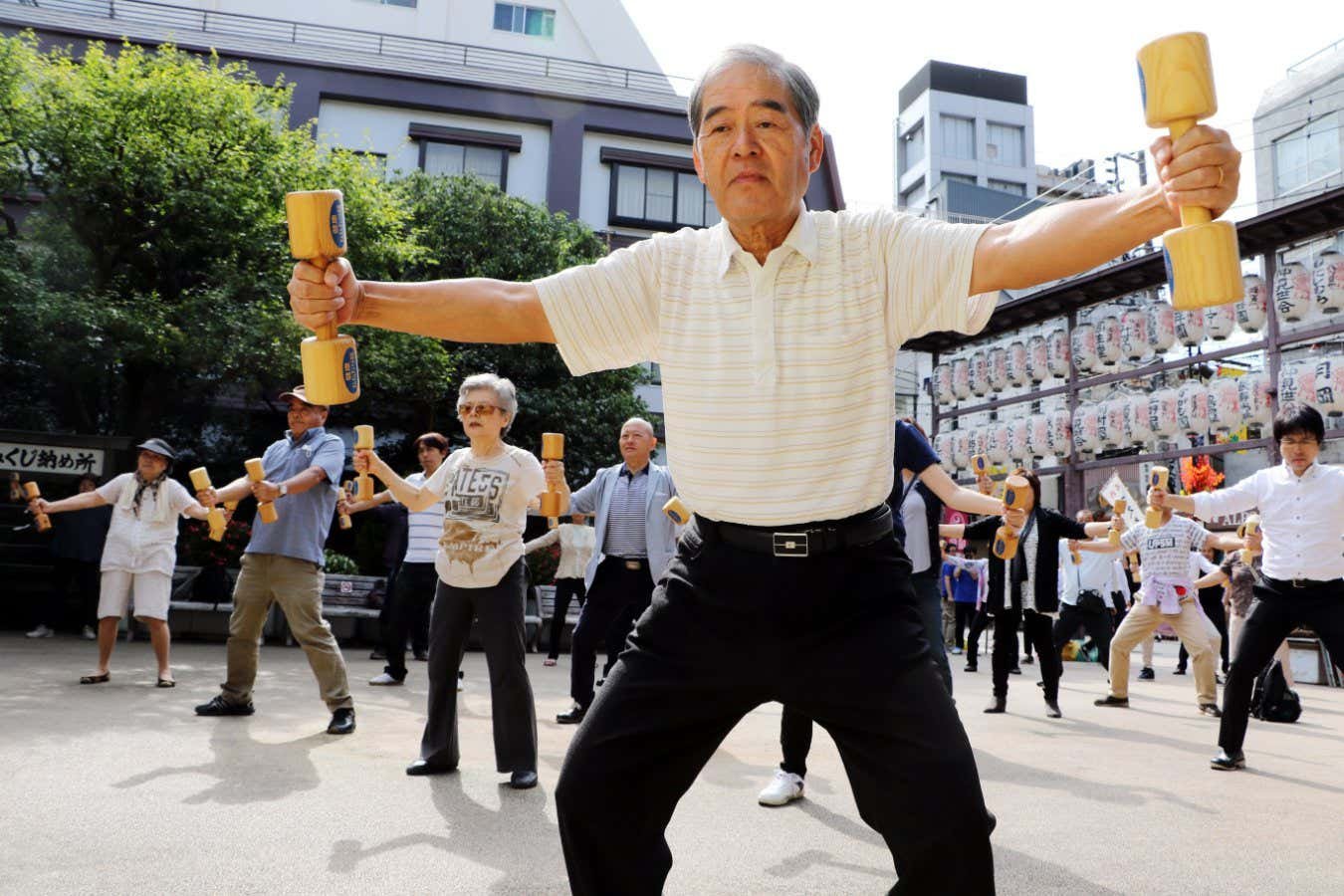Regular training can help keep us sharp
Yoshikazu Tsuno/AFP via Getty Images
A structured course with exempliise, diet, cognitive challenges and the social committee seems to be particularly effective in warding off cognitive decline compared to more relaxed self -controlled efforts.
The brain’s ability to remember, use language and loose problems tend to fall with age, often leading to dementia. Still, research has shown up to 45 per year. Hundreds of global dementia boxes can be preventable by changing 14 risk factors, such as lack of education, social insulation and traumatic brain damage.
To investigate ways to ward off this fall, Laura Baker has at the Wake Forest University School of Medicine in North Carolina and her colleagues conducted a study called US Pointer Study.
The harnessed more than 2100 participants, whom we considered to have a high risk of cognitive decline, because they were between 60 and 79 years old, had a sedentary lifestyle, ate a suboptimal diet and met at least two other dementia -related criteria, such as a family history of memory reduction.
We randomly assigned the participants to one of two regimes who love to encourage both physical and cognitive activity, a healthy diet and a social commitment, but went around it in different ways.
One was very structured with 38 small group meetings in the two years when trained facilitators handed out plans. This regime also involved regular exercise in a social center, guidelines to follow an anti-demementia diet and weekly web-based sessions using brain education software.
The other group was more self -government with only six group meetings in the two years. These participants re -enter publicly available educational material and $ 75 gift cards intended to change behavior such as Wait Gym classes.
Two years later, both groups showed improvements to a cognitive screw system that tested their memory, performing function and treatment rate. The structured group improved with 0.24 standard deviations per year compared to their average score at the beginning of the trial, while the self-controlled group was improved by 0.21 standard deviations per year-one small but statistically significant.
“It is impressive that the structured care group did better,” says Gill Livingston at University College London. But she points out that the study did not involved a control group that received no intervention to compare the structured and self -government participants.
Baker says her team has modeled how big a decrease in cognitive scores could be accelerated without any regime and that estimates the benefit would be meaningful. “The two-year structured intervention slows down the cognitive aging watch with onely two years,” she says.
It is possible that both groups were improved because they expected to get better, a phenomenon similar to the placebo effect, Baker says, and she adds that all the participants thought they had been randomized to the group with the best expected results.
Claudia Sumoto at the University of São Paulo in Brazil claims that the small difference in cognitive scores between the groups would probably become noticeable to the participants or their families. Dementia is also typically a slowly ongoing condition, so it will take longer than two years to see clear effects, she says.
Baker says the US pointer survey has a four -year extension period, so the team will follow some participants II all six years. “These are very subtle changes [we’re observing]Because the cognitively normal people and we just slow down a slow decline over time, “she says.” We are just really excited about the possibility that you were could take people who are in danger of dementia and we could strengthen them to take control and their own health. “
She also believes that the burdened structured approach could be used feasually out of experiments. It’s not about spending a lot of public money on creating this good habit, but rather about carers and medical professionals encourage people to do them, she says.
“Generally, dementia care is so exesic that reducing its barley would make a costales,” Livingston says. “I think this study is important because it shows that lifestyle improvement assistance and people did a little better with the help of guide, but that doesn’t mean it’s the only way to do it.”
Topics:
